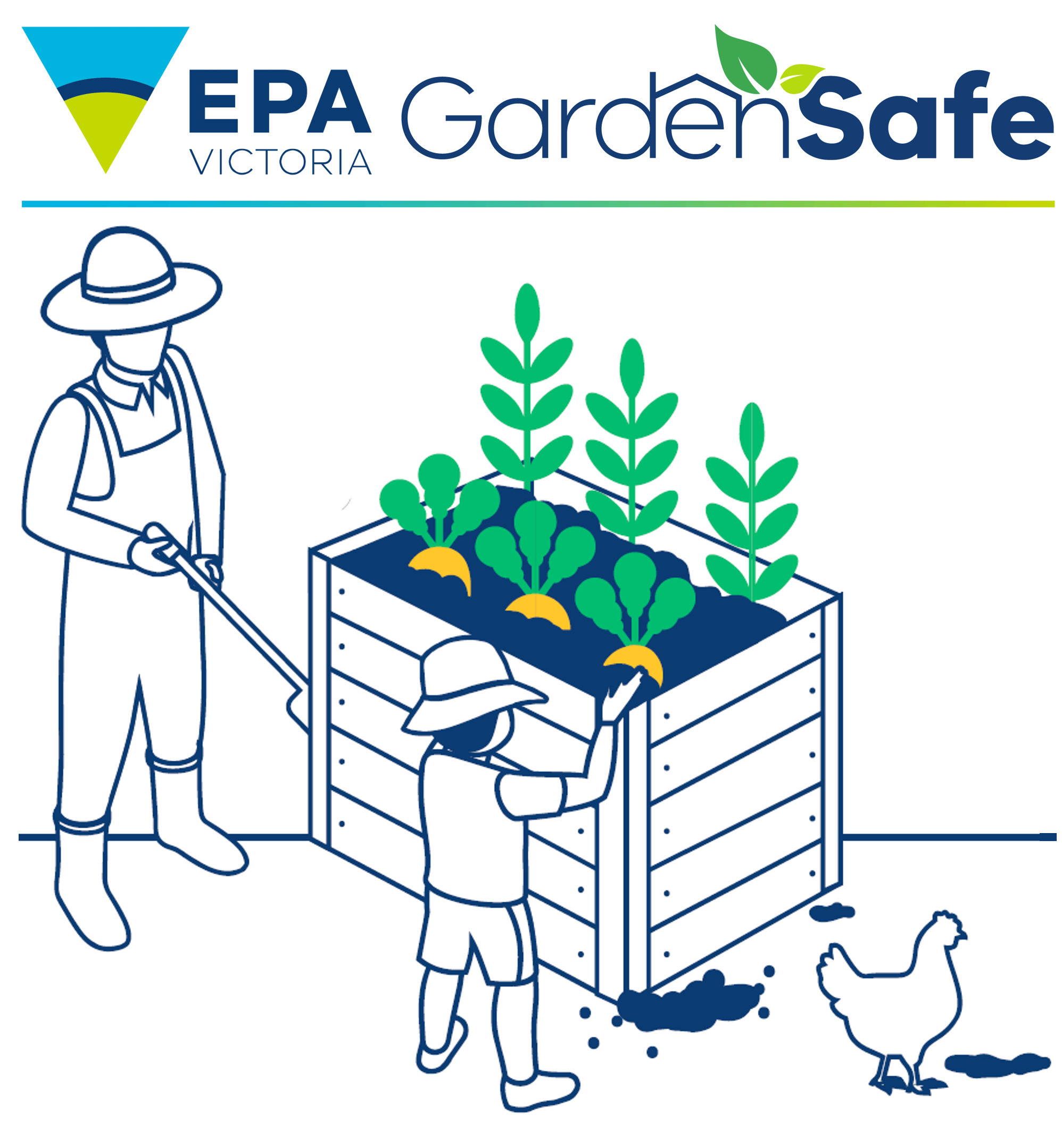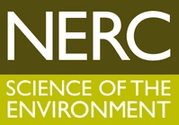GardenSafe: About
A citizen science program by the Environment Protection Authority Victoria

Welcome to GardenSafe
Waste and chemicals that pollute our air, soil and water can persist in the environment, and in our gardens.
Most chemicals enter the environment through sewage, waste and accidental discharge, or can be by-products from industrial activity. Historical contamination sources, like lead paint and leaded gasoline have also impacted urban soil quality. These contamination sources can affect soil quality and how well our veggies grow. They may also have human health implications from eating garden produce or working in the garden if contaminants are present at high concentrations.
GardenSafe is a soil testing program run by the Citizen Science team at Environment Protection Authority (EPA) Victoria. This program aims to equip community with the knowledge and resources they need to understand their backyard soil quality.
GardenSafe invites Victorians to send 3 garden soil samples for screening assessment. Each sample will be screened for:
Garden soil quality indicators, including soil composition, organic carbon, and soil nutrients phosphorus and potassium.
Trace elements, including lead, arsenic and chromium.
In return, you will receive a personalised report with the screening results from your garden. We’ll also provide you with tools to understand your results and guidance on ways to reduce harm from pollution and waste.
There is no cost to participate in GardenSafe, other than the postage to mail your soil samples to us.
Complete the registration survey to send us your garden soil samples.
Your data
The findings from GardenSafe will help to build EPA’s understanding about the presence and distribution of contamination, especially in urban areas.
By understanding your own backyard, EPA hopes that GardenSafe will help you to make informed choices about how you use your garden. To ensure the program meets this goal, EPA will not use the information generated by participation in GardenSafe to take compliance or enforcement action against you.
In collaboration with our partners, including VegeSafe and SoilSafe Aotearoa, the screening data collected will contribute to the open access global interactive map: Map My Environment. The online tool combines work from other citizen science projects to improve environmental data accessibility and empower community to make informed decisions about their local environment. Technical controls, including a double jitter, are applied to protect individuals’ privacy, preventing personal information being used to spatially identify individuals or sample locations. View EPA's privacy policy for more information.
What’s in your soil?
Soil is a complex mixture of minerals, organic matter, gas, water and living organisms.
This mixture is naturally influenced by local geology, vegetation, topography, time and climate. It can be altered intentionally or unintentionally by human activity, including agricultural practices, industrial processes and the addition of imported soil, fertiliser, and compost.
GardenSafe garden soil testing provides a snapshot of the following components of your garden soil:
Garden soil quality indicators
There are many physical, chemical, and biological factors that influence your soil quality and how well the plants in it will grow.
GardenSafe screens samples for the following soil quality indicators:
Soil texture
Soil composition
Total organic carbon
Plant nutrients: total phosphorus (P) and total potassium (K)
Trace elements
Some trace elements occur naturally in soils, while others are added to soil via human activity. Elevated trace element concentrations may be present in garden soil contaminated by lead paint or some treated timber products. Many trace elements can be harmful to human and environmental heath at high concentrations. Learn more on how to interpret results and how to reduce harm from contamination.
GardenSafe screens samples for:
Arsenic (As)
Cadmium (Cd)
Chromium (Cr)
Copper (Cu)
Manganese (Mn)
Nickel (Ni)
Lead (Pb)
Zinc (Zn)
Your soil testing report will contain the screening results for the analytes listed and guidance on how to interpret your results.
Our General Environmental Duty
The General Environmental Duty (GED) applies to all Victorians and includes obligations and protections for the community. Everyone in Victoria has a responsibility to reduce the risk of activities that may harm human or environmental health.
There are many ways you can meet your GED. For example:
Consider the impact of noise or wood smoke on your neighbours.
Keep your wastewater or septic system in good working order.
Manage risks if you think your land might be contaminated.
Exposure to soil contamination may cause harm to human or environmental health. Contamination can also move through the environment via soil and groundwater and enter the food chain, posing risk beyond your backyard.
GardenSafe helps Victorians to meet their GED by providing you with a snapshot of what is in your garden. We'll also provide guidance on some ways that you can reduce harm from pollution and waste in your garden.
These actions could be simple, like mulching exposed soil or growing veggies in a raised garden bed filled with new soil from a reputable provider. Or, they could be more complex, like excavating, replacing or paving over the soil around your home.
Contact us
If you have a question about GardenSafe garden soil testing, please email us at gardensafe@epa.vic.gov.au.




ABOUT US
The 360 Dust Analysis program is a global research initiative to collect and analyse data on contaminants of concern that may be harmful to human health in homes and gardens..
CONTACT US
dustsafe@mq.edu.au
gardensafe@epa.vic.gov.au
ee.dustsafe@northumbria.ac.uk
LOCATIONS
Macquarie University, NSW, Australia.
Environment Protection Authority, VIC, Australia.
Northumbria University, Newcastle, United Kingdom.
IUPUI, Indianapolis, United States.